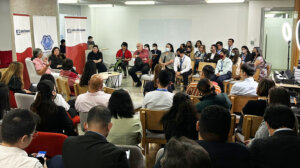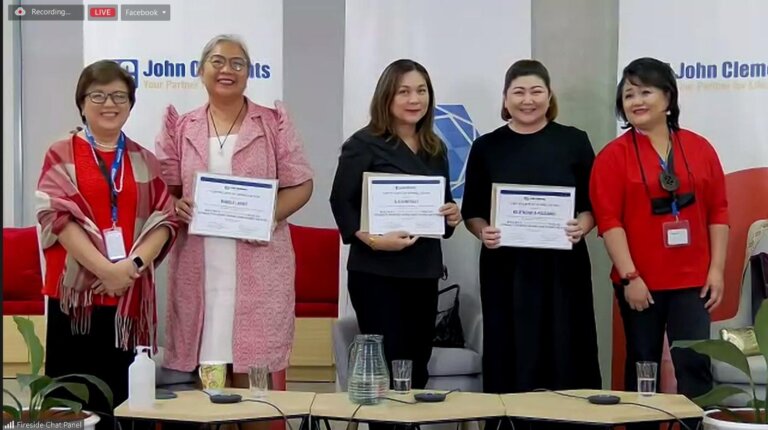The most recent episode of the Weekly with JC Leadership and HR Series, held last May 18, 2023, challenged the audience to consider the very essence of what sustainability should look like and how sustainable initiatives should address the symbiotic longevity of both a corporation and the environment. A variety of perspectives were drawn, ranging from a close-up, micro observation of a business’ influence on the community in which it operates to broader, macro discussions on the profitability of sustainability. In conversation were Mariglo Laririt—Director for Sustainability for Ten Knots Development Corporation and Koleen Davila-Palaganas—Vice President and Head for Sustainability of SM Investments Corporation, and Founder of SustainablePH. Distinguished in her own right, the conversation was moderated by Alicia Morales—Managing Director of John Clements Leadership Institute.
What is now a buzzword, sustainability had long been the issue at hand for many Filipinos and their businesses as they were keenly aware of the wealth afforded by the nation’s natural environment. Ms. Laririt attested to this in the anecdotal re-telling of some of her personal experiences. Beginning her career as a biologist, she realized that much of the infrastructure that was to spur economic growth had grave environmental consequences. To this day, legal entanglements have hindered efforts to “go green” as the current policy has yet to strongly prioritize corporate sustainability initiatives, citing that the installation of various sanitation systems often requires licensing and that such licensing would subject the business to further auditing.

Furthermore, Ms. Laririt noted that there has been long-standing difficulty to truly reconcile maximizing profits and protecting the environment, especially in the tourism industry, an industry of particular importance in the Philippines. While it is often centered on the appeal of the natural environment, the communities of these tourist destinations can often walk away as beneficiaries as large inflows of tourists propel their local economies in ways that would be unattainable by themselves. Hence, it is difficult to scale the benefits of a growing local economy against the environmental impact that is left behind by the tourists, which is ultimately felt by the people who reside there permanently. Oftentimes, the sustainability measures can only be directed by the large businesses that reside in these communities. Ms. Laririt believes that in this case, the tourist holds the responsibility for choosing vacation destinations that support green tourism and prioritize its partners in the local communities. She also discussed the need for innovation in the design of packaging materials, which would further encourage the transition to green tourism.

Ms. Davila-Palaganas was keen to note that this kind of approach to sustainability would not only be a profitable approach to protecting the environment; it would also mean an enduring commitment to the people of the Philippines. In her responses, she lamented the abject poverty which has ailed Filipino communities for decades and contrasted it with what appears to be an abundance of natural resources across the country. She, too, emphasized the need to reconcile corporate objectives with environmental ones, arguing that their reconciliation could, in fact, mean a slimmer, higher-functioning organization. Ms. Davila-Palaganas outlined the constant need for corporations to optimize output and eliminate wasteful business practices. This could mean maximizing corporate revenue, while also ensuring continued access to the nation’s natural riches. Furthermore, she noted that other critical sectors of the Philippines, like the fishing industry, would face severe repercussions if corporations continue to engage in exploitative measures. She went on to comment that the government has a role to play in encouraging small and medium-sized businesses to make this transition to higher sustainability.
The greater message conveyed was that there still remains a lot to be done in this move toward sustainability in the Philippines. The implicit message, however, is that work is to be done by all parties—the government, the corporations, and the people. Sustainability is important not because an environmental crisis is imminent, but because pursuing it wholeheartedly will empower the nation to create a more efficient economy that would spread the benefits of a growing prosperity to all its people. Sustainability will become the centerpiece of many conversations regarding the future of the Philippines, and it will remain to be until it is prioritized.

Please visit our events page to learn more about our upcoming events.





